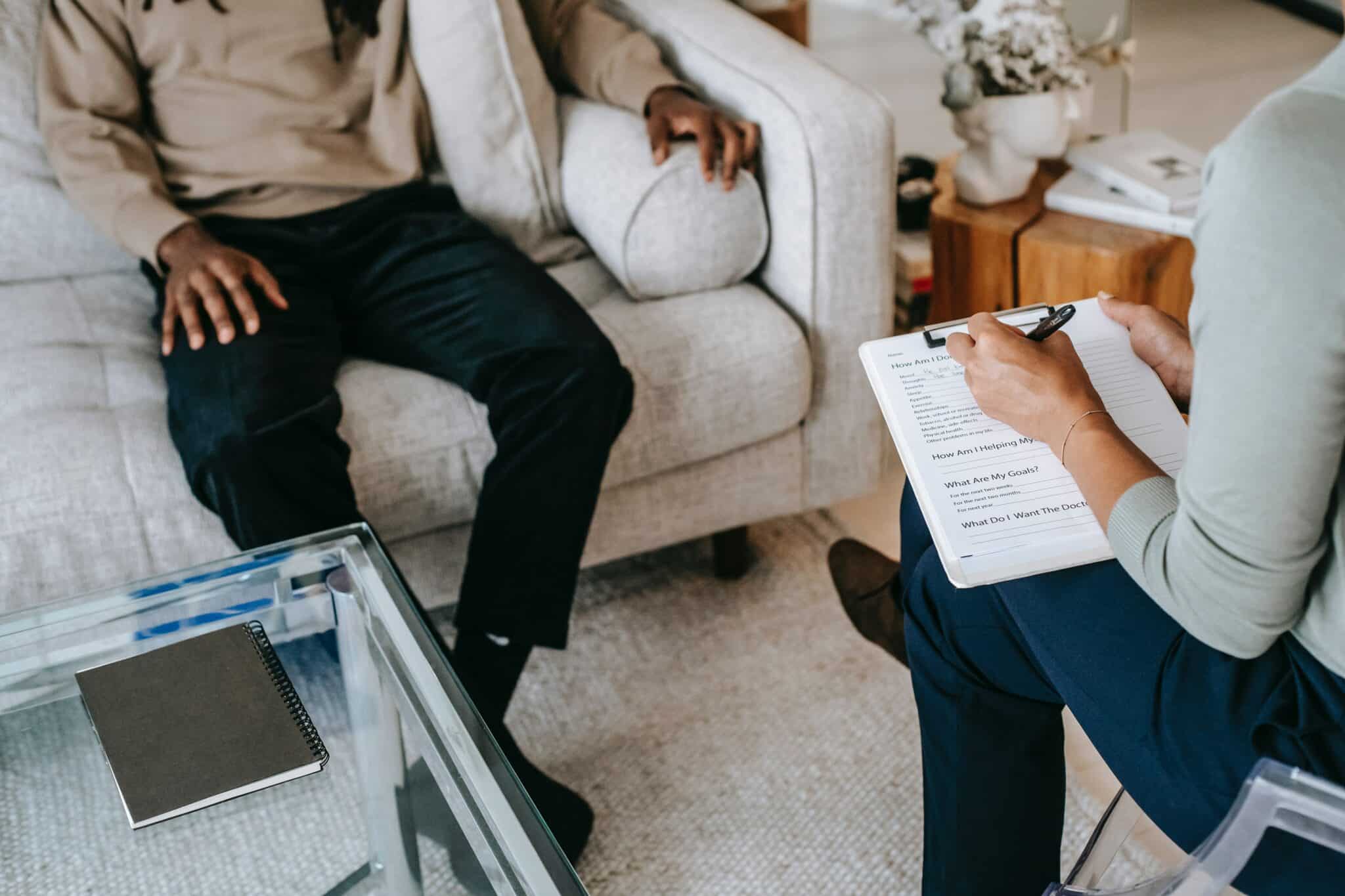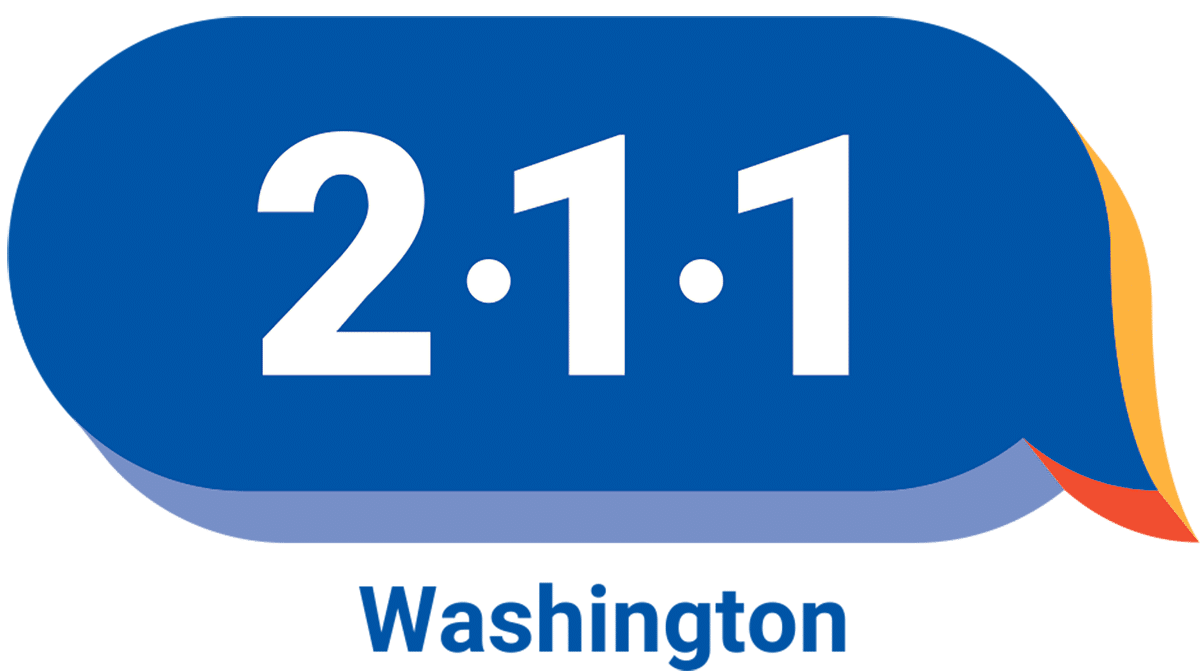Learn more about the Mental Health Services and Resources Washington 211 can help provide.
Find Mental Health Services Near Me
Mental Health Evaluations
Our Mental health impacts how we think, feel and act. It determines how we relate to others, make choices and handle stress, according to the Substance Abuse and Mental Health Services Administration (SAMHSA).
Don't hesitate to reach out for help if you are struggling. WA211 can provide the resources needed to reach out. See resources below.

Central Intake/Assessment for Mental Health Services
Counties across the state provide publicly funded mental health services to people in need. Services are provided through licensed community mental health centers. These programs can connect users to publicly funded programs.

Clinical Psychiatric Evaluation
Providers who are able to diagnose mental health disorders. Diagnostic techniques may include observation of the person's behavior, interviews with the individual and significant others, or psychological testing.

Crisis Hotlines
Various hotlines provide immediate and confidential support to people in emotional crisis and are generally open 24 hours and give immediate assistance. Most are phone lines, but some offer chat or text.
Don't hesitate to reach out for help. See specific hotline resources below.

General Crisis Hotlines
These hotlines provide general assistance to unspecified groups of people. If you don't find what you're looking for, there are more specific hotlines below.

Youth Lines
Counselors with expertise in the needs and issues of youth assist youth and teens relating to youth-related topics. Conversations may happen by phone but also by email, chat or text. Lines may have a specific focus such as child abuse, LGBTQ or reuniting youth who have run away from home.

Substance Abuse Lines
Provides support and resources to people struggling with a substance use disorder along with their families and friends. Some lines specialize in helping those using specific drugs such as alcohol or opiates while others help more generally.

Domestic Violence Hotlines
Immediate assistance for women and men who have experienced domestic abuse which may include steps to ensure the person's safety; short-term emotional support; assistance with shelter; legal information and advocacy; as well as referrals for medical treatment.

Counseling Services
Counselors provide in-person and virtual support to people who struggle with personal, social, or psychological problems.
Don't hesitate to reach out for help. See specific counselor resources below.

General Counseling Services
Counselors and therapists provide emotional support to help people resolve issues that are troubling them. They do not specialize in any particular area
Typically these agencies are nonprofit and accept Medicaid or offer a sliding scale fee.
Don't hesitate to reach out for help.

Therapy Referrals
Websites or phone services that list a wide variety of therapists including those in private practice. Allows the opportunity to filter the data by specialty, payment options and area.

Psychiatric Counseling
Programs that specialize in the treatment of individuals who have identified mental or emotional disorders. Counseling helps them eliminate or reduce the severity of their symptoms and maximize the individual's ability to function as independently as possible.

Youth Counseling
Counseling that is sensitive to the needs of youth and teens. Common issues include social isolation, peer pressure, bullying, anger management, family problems, depression and anxiety, and suicidal thoughts.

Wraparound with Intensive Services
Helps children, youth, and their families with intensive mental health care. WISe is a voluntary service that takes a team approach to support families. Team members include natural supports (such as family, friends, and religious leaders) and the professionals (such as counselors, schools, Child Protective Services (CPS), and probation officers).
Services are accessed through community behavioral health provider agencies.

Learn More About 988
988 is the new three-digit national hotline designated for mental health emergencies in the United States. Similar to 911 for emergencies and 211 for social and health related referrals, 988 is dedicated to providing immediate support and resources to individuals experiencing mental health crises.
This easily accessible number aims to connect individuals in distress with trained professionals and vital services, offering timely assistance and support when needed most.
-
-
Veterans Crisis Line
-
Spanish Language Line
-
LGBTQI+ Youth Subnetwork Line
-
American Indian and Alaska Native people
-
People who use American Sign Language (ASL)
-

Search Tips from Seattle Children's
-
Contact Insurance
- Understand your plan’s mental health benefits
- Inquire if you can request a case manager/case coordinator to help with your search and obtaining potential insurance reimbursements for out-of-network providers.
- Inquire if you have out-of-network benefits. Some additional questions include:
- Do I need a referral from my primary care physician to a mental
health professional? - Do I need to see a mental health professional who is on a list provided by my insurance company (in a "network") or am I free to choose any qualified professional?
- What benefits do you cover (including treatment settings and medications)?
- Do I need a referral from my primary care physician to a mental
-
Be persistent!
- Reach out via phone, email, and/or contact inquiry on their website. Include your name, contact information, insurance, and a brief description of primary concerns for starting therapy.
- Reach out again in a week.
- Contact multiple providers.
- Get on multiple waitlists.
-
It may take time to find the right person.
- Ask for a free 15-20 min consultation with each provider to discuss their therapy approach, your goals, and availability.
- The calls are an opportunity to ask questions, to share a little bit more about what you’re looking for, to find out what kind of therapy the provider uses and to hear their voice, as well as figure out scheduling.
Get connected, get answers.
Simply call 211, Monday - Friday 8AM to 4PM
